|
Click
on any underlined blue word for a link |
|
|
1910. This year saw the opening
of two famous English Aerodromes, Brooklands and Hendon. It was
a happy thought which converted the space enclosed by the famous
motor track into a flying ground which has been the scene of
so many great aviation events. It was used by aviation pioneers
such as Louis Bleriot and Claude Grahame-White, the latter bought
the land and promoted it as London's Aerodrome, establishing
a Bristol Aeroplane Company Flying School. It was then the base
for the Grahame-White Aviation Company aircraft factory, and
while proving a highly successful commercial venture, it undoubtedly
conduced more than any other undertaking to popularize aviation
in this country. It was reckoned a poor gate at Hendon before
the War if less than 10,000 people were present on a Saturday
or Sunday afternoon, and on Aerial Derby Days and such like the
numbers rose to 60,000 ; so that a year's attendance had actually
to be written in seven figures. Undoubtedly the 'Hendon habit'
had grown upon the people of London, and with the exception of
the great German flying ground of Johannisthal near Berlin, the
scene of the utmost activity and preparation before the outbreak
of hostilities, our London Aerodrome became at once the most
popular in the world. The buildings shown are the remains of
the Grahame-White's World War One aircraft factory. They are
dated 1915. After World War One ownership was eventually passed
to the Royal Air Force in 1925. In 1919 Claude Grahame-White
and Francis Lewis Wills created Aerofilms Ltd a pioneering aerial
survey company. During World War Two the airfield was mainly
used for transport purposes because of its good road and rail
links. During the war the airfield was repeatedly attacked, including
hits by V1 "flying bombs". After the war use declined.
Part of the site was sold for housing in 1968. The RAF station
closed between 1987-1988, but a Royal Air Force Museum was opened
here in 1972. |
|
|
|
Some
London Aerodrome First's |
|
First International flights |
|
First official airmail |
|
First Air Races |
|
First Civil Air Traffic
Control Tower |
|
First Flying Schools |
|
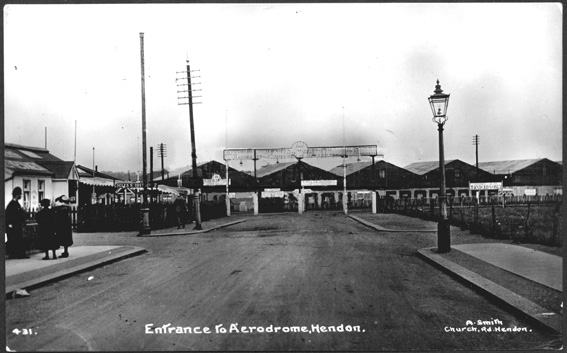 |
|
(above and below) The entrance in 1910 to the new
London Aerodrome Hendon. |
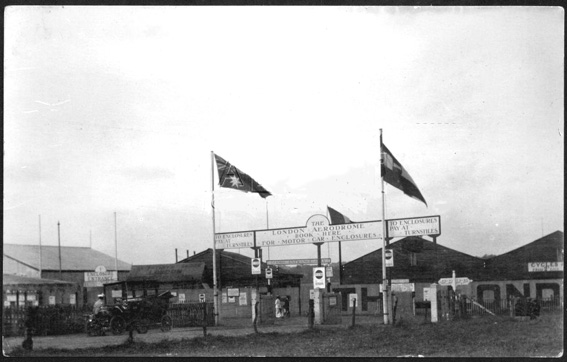 |
|
|
(below) A Flying Day in 1910. The crowds of spectators
and the Press Enclosure. |
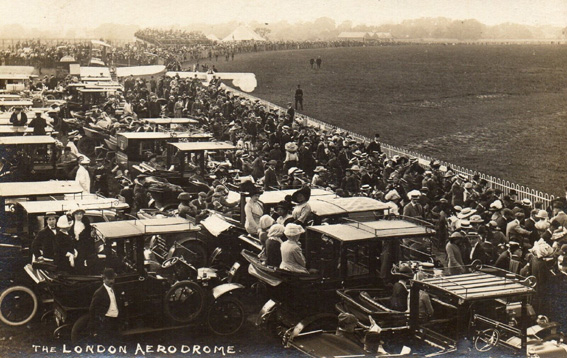 |
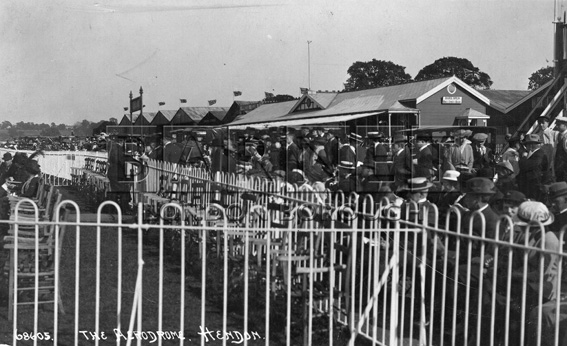 |
|
(below) a later Flight Day in 1912. |
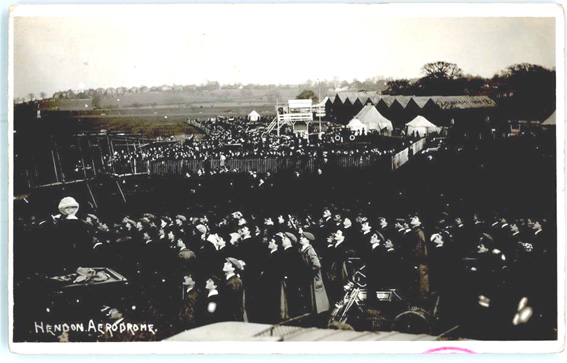 |
|
|
(below) The man who started it all entrepeneur and businessman
Claude Grahame-White. |
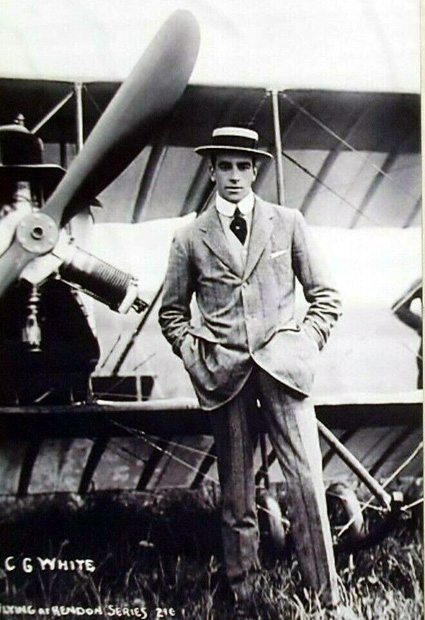 |
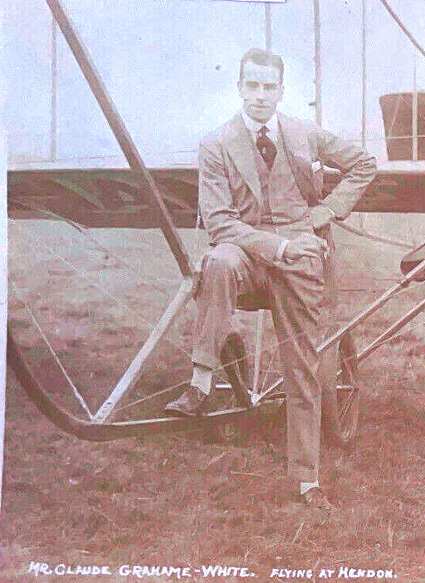 |
|
(below) The Grahame-White factory built in 1915 |
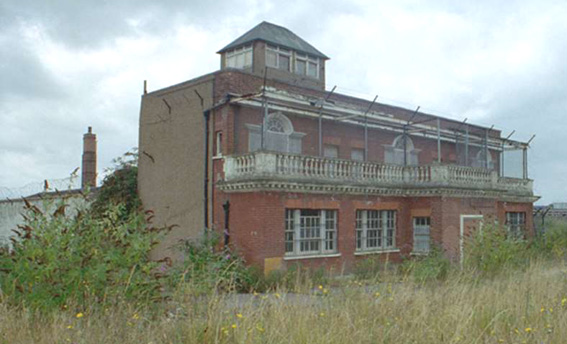 |
|
|
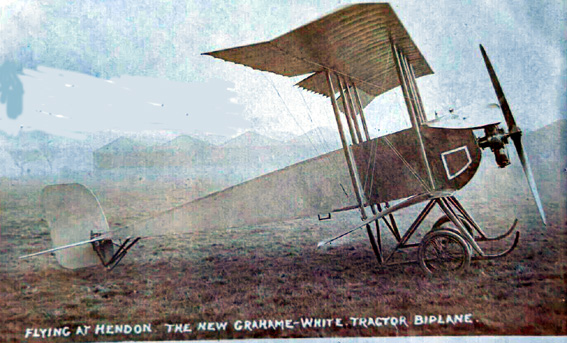 |
|
(above and below) some Grahame-White aircaft |
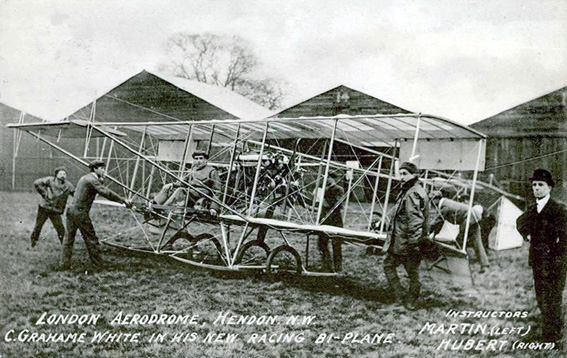 |
|
|
(below) a 1911 advert |
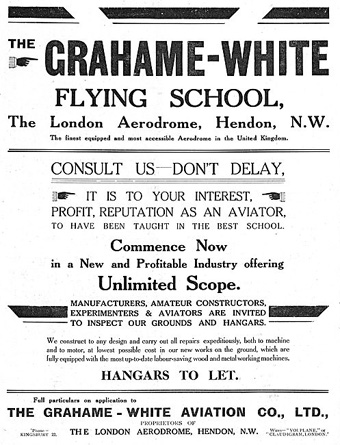 |
|
|
(below) Grahame-White also built cars at Hendon |
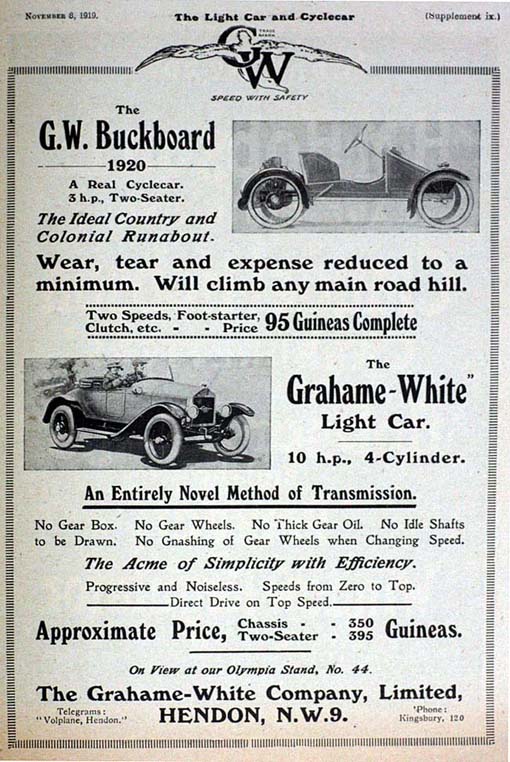 |
|
 |
 |